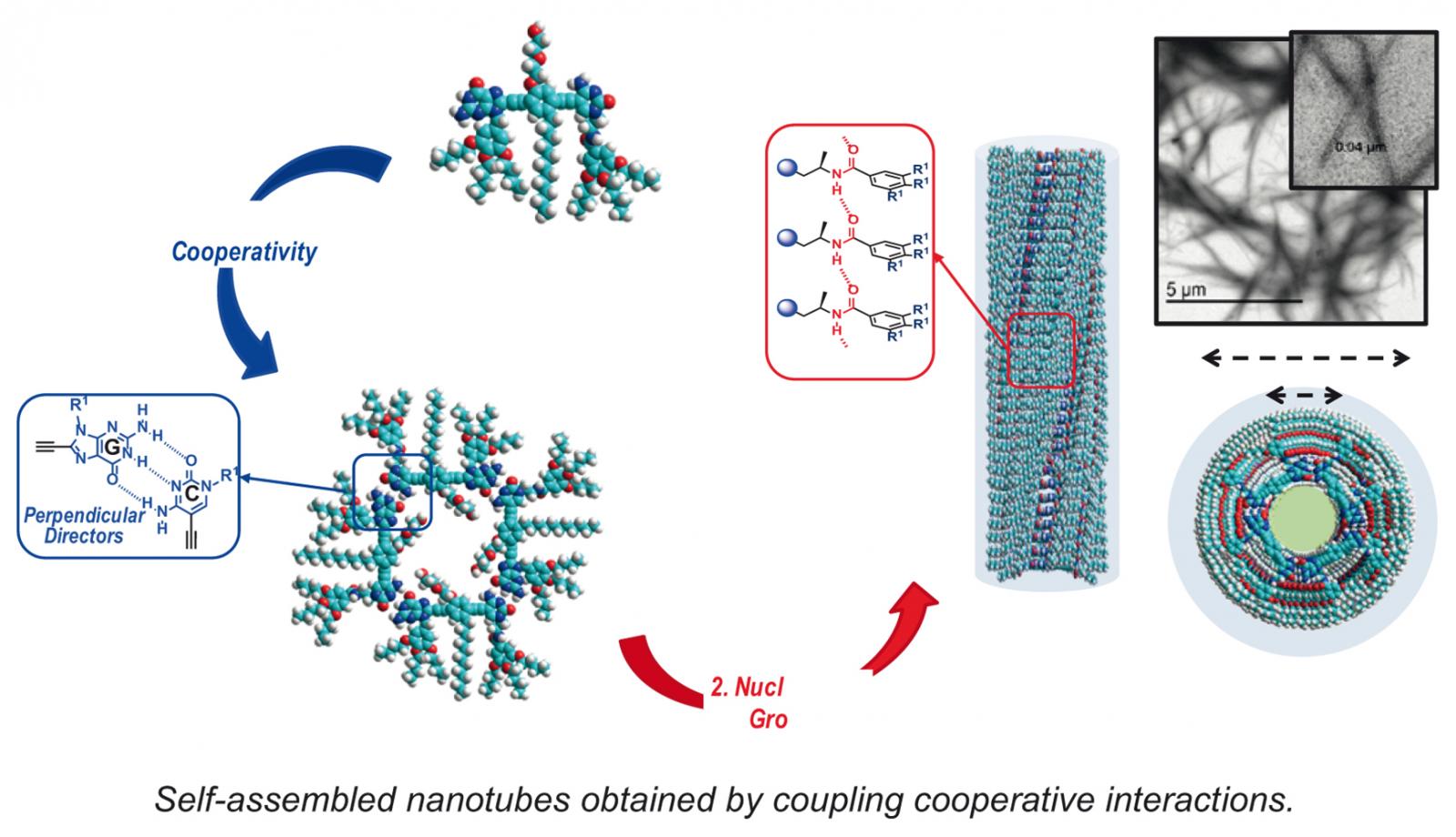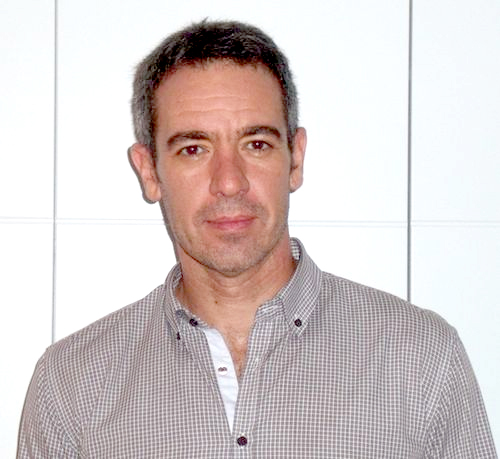Lecture: 'Hierarchical Supramolecular Construction of Self-assembled Nanotubes by Coupling Cooperative Effects'

Our project aims at establishing an unconventional and versatile strategy to prepare self-assembled nanotubes whose size, shape, composition and function can be rationally predesigned and controlled at the nanoscale using concepts and tools of supramolecular chemistry. Cyclic tetramers are formed from 4 monomeric Π-conjugated subunits by H-bonding interactions between nucleobase directors.
A proper monomer preorganization affords high chelate cooperativities and thus high cyclization yields in solution and onto surfaces. In the last case, nanostructured porous 2D networks are assembled that can host shape-complementary guests. When these cyclic species are subjected to supramolecular polymerization reactions, self-assembled nanotubes are formed via a nucleation-growth cooperative mechanism. By adjusting the monomer structure, we can not only reach an extraordinary degree of control on the tube diameter and pore coating, but also on the coupling between chelate and nucleation- growth cooperative processes.
David Gonzalez-Rodriguez (Madrid, 1976) obtained his degree in Chemistry in 1999 at the Universidad Complutense de Madrid. He then joined the Nanoscience and Molecular Materials research group of Prof. Tomas Torres at the Universidad Autónoma de Madrid, where he obtained his PhD in Organic Chemistry in 2003. After two consecutive stays in the groups of Prof. D. M. Guldi (University of Notre Dame, EE.UU.) and L. Echegoyen (Clemson University, EE.UU.), he joined the laboratories of Prof. E.W. (Bert) Meijer, at the Technological University of Eindhoven (NL), as a Marie Curie Intra- European postdoctoral fellow (2005-2008).
He then returned to the UAM with a Marie Curie Reintegration Grant and in 2010 he obtained a permanent position as Associate Professor (Profesor Titular). Since 2012, he leads the group of Nanostructured Molecular Systems and Materials (MSM) at the UAM comprising ca. 10-15 researchers and funded by several National and European actions, among them a ERC-Starting Grant (PROGRAM-NANO; 2012-2016), and more recently 2 ERC-Proof of Concept Grants (CompAd; 2017-2018, and PolyHeal; 2018-2019).
Dr. Gonzalez-Rodriguez is the author of ca. 70 publications as well as several patents and book chapters. He has been the recipient of numerous Spanish and International Fellowships and Grants. He has also been awarded with several prizes for young researchers: the 2010 SUSCHEM Prize, the 2011 Sigma Aldrich Emerging Investigator Award of the Spanish Royal Society of Chemistry (RSEQ), the 2012 Young Investigator Award from the International Society of Porphyrins and Phthalocyanines, or the 2012 Young Researcher Award from the Universidad Complutense de Madrid. Since 2013 he is a member of the advisory board of Chemical Communications.
His research interests focus on the development of new, versatile strategies to improve or create novel functions in organic materials by rationally ordering molecules at the nanoscale using the tools of self-assembly. The potential applications of such molecular nanostructured systems range from optoelectronic -functional devices to custom- tailored nanoporous networks.



